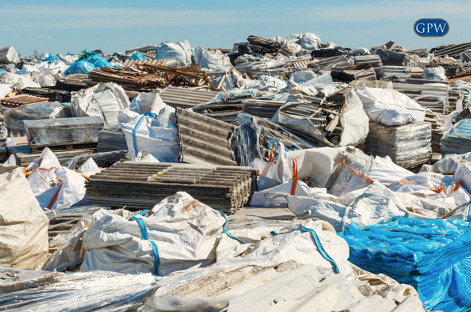What To Do If You Are Exposed to Asbestos
Asbestos exposure poses significant health risks, as it is linked to serious respiratory diseases, including lung cancer and mesothelioma. If you suspect or confirm exposure to asbestos, it’s crucial to take immediate and informed action. This blog outlines the necessary steps to minimize risks, protect your health, and seek appropriate medical attention.
The first thing you should do if you suspect asbestos exposure is identify the possible exposure source. Asbestos was commonly used in construction materials until the 1980s due to its fire-resistant properties. Potential sources may include the workplace, older buildings, insulation, roofing materials, or certain household products. Understanding the source can help assess the level of risk and guide your next steps. If you suspect asbestos exposure, leave the area immediately. Asbestos fibers become dangerous when disturbed and can become airborne, making inhalation more likely. Avoid touching, disturbing, or attempting to remove any materials that may contain asbestos.
If exposure occurs at home or in the workplace, secure the affected area to prevent others from entering. Place warning signs to minimize the risk of additional exposure. Promptly inform building management or property owners, occupational health services, and other safety personnel about the situation. They can provide guidance on reporting the incident, accessing medical services, and understanding your rights and benefits related to occupational exposures.
If you believe that your clothing is potentially contaminated, carefully remove it without shaking or disturbing any dust. Place the clothing in a sealed bag and avoid laundering it at home.
We recommend keeping detailed records of the exposure incident, including the date, location, and potential sources of asbestos. Document any symptoms or health issues that arise afterward. This information can be crucial when seeking compensation or filing claims related to asbestos-related diseases.
It’s crucial to consult with a healthcare professional promptly, especially if you experience respiratory symptoms, persistent coughing, or chest pain. Inform the medical staff about your potential asbestos exposure, providing details about the source and duration. Early detection and intervention can significantly improve outcomes for asbestos-related diseases.Asbestos exposure demands swift and informed action to protect your health and well-being. By following these steps, from identifying potential sources to seeking medical attention and legal counsel, you can navigate the aftermath of asbestos exposure effectively.
If you or someone you care about has been exposed to asbestos and is suffering from lung cancer or mesothelioma, you may have legal rights to pursue compensation. You can reach us at 412-471-3980 or fill out our contact form to speak with a member of our team.




